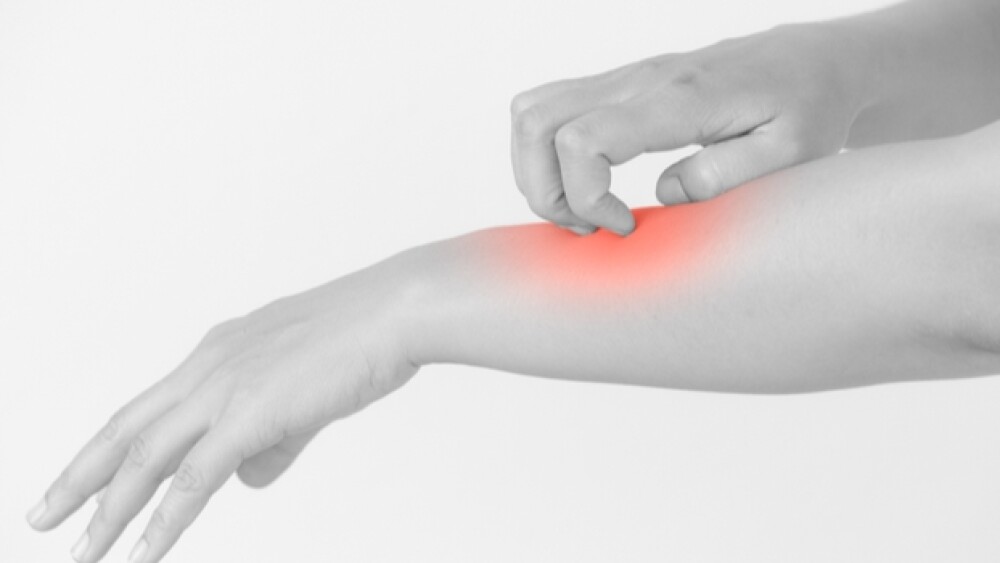The two companies will seek approval for the biologic as a treatment for severe atopic dermatitis in children ages six to 11.
Regeneron and Sanofi plan to seek another approval for Dupixent by the end of the year. The companies will file for approval of the biologic as a treatment for severe atopic dermatitis in children six to 11 years old following positive results from a Phase III trial.
Dupixent, which has been approved to treat severe atopic dermatitis in children ages 12 and up, as well as moderate-to-severe atopic dermatitis, met both its primary and secondary endpoints in the late-stage trial. Dupixent is a fully-human monoclonal antibody that inhibits the signaling of the interleukin-4 (IL-4) and interleukin-13 (IL-13) proteins. Dupixent has been approved for multiple conditions with underlying type 2 inflammation. In June, the drug was approved by the U.S. Food and Drug Administration to treat chronic rhinosinusitis with nasal polyposis (CRSwNP). The approval marks the first biologic medicine for adults with CRSwNP in the United States. In 2018, Dupixent was also approved to treat asthma.
Trial data showed, the two companies said this morning, that using Dupixent alongside standard-of-care topical corticosteroids significantly improved measures of overall disease severity, which includes skin clearing, itching and health-related quality of life. To be diagnosed with severe atopic dermatitis, the associated rashes typically cover more than 60% of the skin surface. Symptoms include widespread rashes, intense and persistent itching, and skin lesions.
Trial data from 16 weeks showed that 70% of patients who received Dupixent every four weeks ) and 67% of patients who received Dupixent every two weeks achieved 75% or greater skin improvement, compared to 27% for placebo. Of those, 33% of patients who received Dupixent every four weeks and 30% of patients who received Dupixent every two weeks achieved clear or almost clear skin compared to 11% for placebo. The patients who received Dupixent also saw significant itch relief, as well as improved quality-of-life measures. The safety profile remained consistent with other Dupixent trials, Sanofi and Regeneron said. Full results of the trial will be released at a future conference, Regeneron and Sanofi said.
George Yancopoulos, president and chief scientific officer of Regeneron, said the trial results speak for themselves. He noted that this was the first to assess a biologic medicine in children under 12 with atopic dermatitis.
“Children in the trial had suffered from severe atopic dermatitis for most of their lives. The trial showed that Dupixent significantly improved outcomes and quality of life, with no new safety signals,” Yancopoulos said in a statement.
John Reed, Sanofi’s global head of research and development, also touted the results of the Phase III trial. He said that symptoms of severe atopic dermatitis take both a physical and mental toll on the child, as well as the rest of the family.
“We are encouraged by these results, which demonstrate that Dupixent improved skin lesions, reduced itching, cleared the skin and importantly, improved health-related quality of life measures for these young patients,” Reed said.





